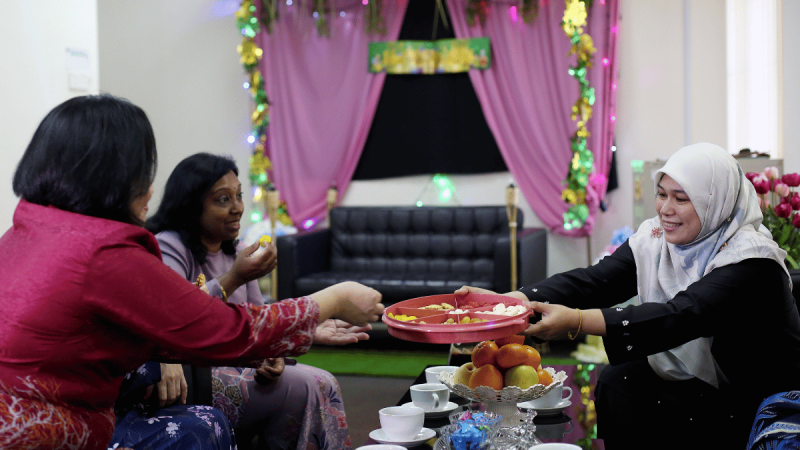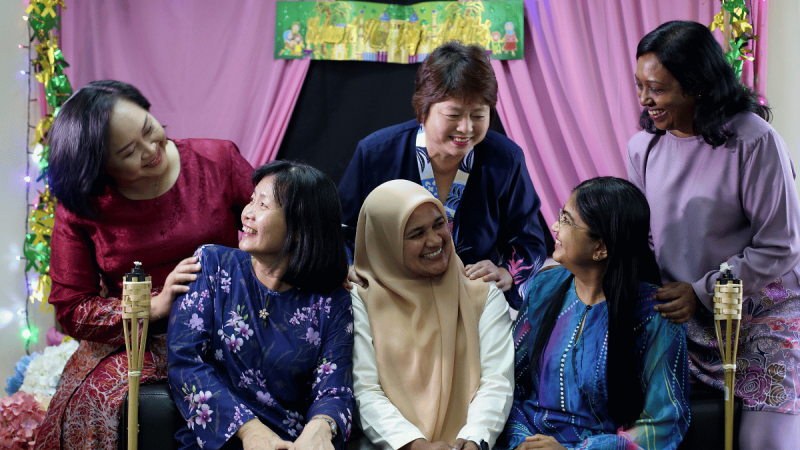Objective, Mission and Vision
Why MKWN is established?
TO PRESERVE, NURTURE AND FOSTER MULTI-CULTURE & HERITAGE IN MALAYSIA AND NUSANTARA.
Culture is the lifeblood of a vibrant society, expressed in the many ways we tell our stories, celebrate, remember the past, entertain ourselves, and imagine the future. In addition to its intrinsic value, culture provides important social and economic benefits. With improved learning and health, increased tolerance, and opportunities to come together with others, culture enhances our quality of life and increases overall well-being for both individuals and communities.

Creating Intrinsic Benefits
Participating in culture can benefit individuals in many different ways, some of which are deeply personal. They are a source of delight and wonder, and can provide emotionally and intellectually moving experiences, whether pleasurable or unsettling, that encourage celebration or contemplation. Culture is also a means of expressing creativity, forging an individual identity, and enhancing or preserving a community’s sense of place.
Cultural experiences are opportunities for leisure, entertainment, learning, and sharing experiences with others. From museums to theatres to dance studios to public libraries, culture brings people in different countries together. These benefits are intrinsic to culture.
Improved Learning and Valuable Skills for the Future
Participation in culture contributes to healthy populations in several ways. Creativity and cultural engagement have been shown to improve both mental and physical health.


Providing Better Health and Well-being
Participation in culture contributes to healthy populations in several ways. Creativity and cultural engagement have been shown to improve both mental and physical health.
Creation of Vibrant Communities
The benefits of culture for communities can spill over to a country as a whole. Culture helps build social capital, the glue that holds communities together. By bringing people together, cultural activities such as festivals, fairs, or classes create social solidarity and cohesion, fostering social inclusion, community empowerment, and capacity-building, and enhancing confidence, civic pride, and tolerance.


Bringing Economic benefits of culture
The culture sector helps support the economy through direct and indirect job creation. It also helps spur innovation in other sectors in the form of productivity advancements, regional development, community branding, and increased local tourism.
Contribution to job creation
Economic opportunities created by culture have taken on greater importance as economies transition from the industrial model, and work based on physical labour, to a new model in which knowledge and creativity drive productivity and growth.


Cultural planning
The Mission to Preserve Heritage
Heritage is legacy from the past, what we live with today, and what we pass on to future generations, our cultural and natural heritage are both irreplaceable sources of life and inspiration”. Heritage can not only be expressed in tangible (including buildings, monuments, landscapes, objects, and artefacts), and also included intangible (including traditions, language, knowledge and memory).
Heritage often perceived as the protection and save of past. In fact, heritage is important to us because it is the fundamental to learn history and evidence of the past human activity of the city, the heritage also elaborates the transformative process in social from past in the present of urban area by generations. Each city and place remains its distinct cultural characteristics and historical background, make its specific identity and uniqueness of each community.
Cultural Heritage plays a very important role in life. It is what keeps people attached to their religion, traditions & belief. In today’s context it is refer to cultural identity which means identity of a group or culture, as far as they are influenced by their belonging to a group or culture. It is necessary to give awareness of Cultural Heritage and the ethics to identify tools that can be developed to help communities for the better understanding and conserve their heritage.

To Give connection to Younger Generation
Cultural Heritage can give people a connection to certain social values, beliefs, religions and customs. It allows people to identify with others of similar mindsets and background. Cultural heritage can provide an automatic sense of unity and belonging within a group and allowed to understand about previous generations and the history where the origin.

It Gives the
Communal Support.
Cultural heritage is made up of many things large and small. They can be seen in the buildings, townscapes even in archaeological remains. Cultural can be perceived through natural sources such as agricultural and landscapes associated with it, artifacts, objects, pictures, photographs, art, and oral tradition, food and clothes.

It Gives Spirit & Direction of Nation Found and Reflected in its Historic Heritage.
The distinctiveness of the culture and tradition which is made visible in the everyday life of the communities.

Provides Sense of Belongingness
Ideology of cultural Heritage is one of the factors that help passing down and sustain future generation.

Provides Senses of Unity
If the future generations come to know about their unique culture and traditions, they will feel proud for having the unique culture compared to various countries.

Senses of Personal Identity.
It is our responsibility to keep our world history intact for the future generation so that they can get the same opportunity to learn about the past and their own roots.
